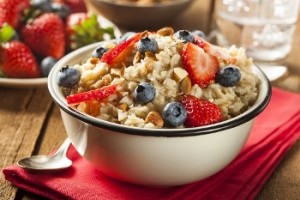 A crucial aspect in your daily dietary needs, fiber helps with weight loss in various ways, provides essential benefits for nutrition and can contribute to good health by preventing digestive problems, diabetes and heart disease.
A crucial aspect in your daily dietary needs, fiber helps with weight loss in various ways, provides essential benefits for nutrition and can contribute to good health by preventing digestive problems, diabetes and heart disease.
What is Fiber?
A wide variety of descriptions exist for this indigestible material. But in general, it is referred to as threadlike and elongated structures in grains, vegetables and fruits that the human body cannot absorb or digest. For decades, it has been considered the ultimate food ingredient for preventing constipation, as well as, maintaining bowel regularity.
In some cases, it also regarded as an indigestible carbohydrate. Aside from roughage, fiber is also often called bulk. You may call it whatever you want, just as long as you realize that it’s a very essential part of a healthy diet.
Types of Fiber
Fiber comes in a couple of forms, namely the soluble and insoluble varieties:
- Water soluble fiber, as the name implies, is a type of fiber that dissipates in water, forming a cumbersome gel-like substance that manages the flow of waste materials in your digestive tract. Water soluble fiber sources include: berries, bananas, apples, legumes (soybeans, peas and beans), oats and some vegetables.
- Insoluble fiber cannot be digested by the human body, as it doesn’t dissolve in water. The main functions of this fiber are to increase your stool bulk and to boost the movement of material through the digestive tract. Insoluble fiber sources include: seeds, nuts, bran, whole wheat foods as well as the skin of some vegetables and fruits.
Health Benefits of Fiber
Fiber can be useful to your overall well-being in a variety of ways:
- Fiber reduces the absorption of sugar in your bloodstream, helping to prevent Type 2 Diabetes and manage blood sugar levels.
- Fiber aids in promoting a healthy heart by lowering bad LDL cholesterol.
- Fiber avoids the risk of constipation and diverticulitis by keeping your digestive system regular and healthy.
- Fiber lowers the risk of developing certain kinds of cancer, such as, breast and colon cancer.
- As recent studies have confirmed, consuming more than 7 grams of fiber every day reduces the risk of stroke by 7%.
- Fiber aids in removing fungus and yeast from the body, which, prevents them from causing rashes and acne.
- A diet with a good dose of fiber reduces the risk of kidney stones and gallstones, thanks to its ability to regulate blood sugar.
Fiber as a Weight Loss Tool
- Foods that are rich in fiber contain fewer calories than other types of food.
- Fiber-rich foods take time to chew before they can be consumed, this means you will feel more satisfied with less food.
- Fiber filled meals and snacks make you feel full and for longer periods of time, helping to control the appetite.
- Fiber helps you feel less bloated and lighter.
Daily Recommended Dose
Women and Men Under the Age of 50:
• Women should get 25 grams daily
• Men should get 38 grams daily
After 50:
• Women should get 21 grams daily
• Men should get 30 grams daily
Foods that are Rich in Fiber
- Berries (eaten whole, not juiced)
- Dried fruits like prunes, dates, and figs
- Edible-skin fruits like pears, grapes and apples
- Roots like sweet potatoes
- Brussels sprouts, zucchini, artichokes, broccoli and other types of green veggies
- Cereals, pastas and whole grain breads
- Legumes, seeds, nuts and beans
Fiber Supplements
For those who cannot get the recommended daily dose, there are a lot of fiber supplements on the market that compensate for dietary deficiencies of fiber. As with fiber-rich foods, these supplements can be beneficial to the body, though, experts do recommend to get this nutrient from food whenever possible.


